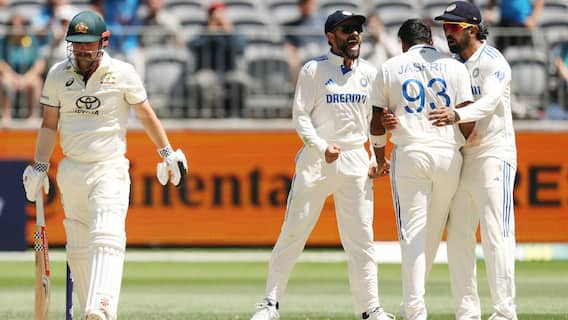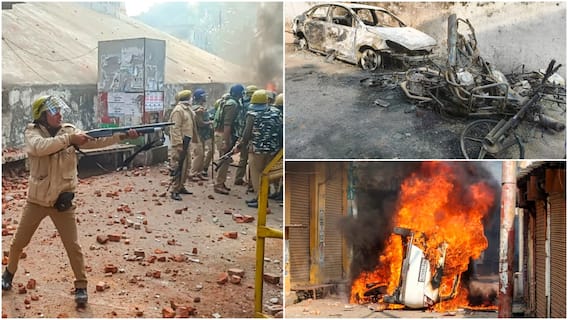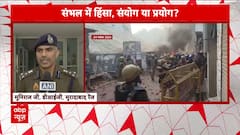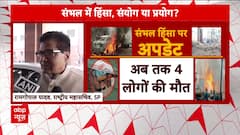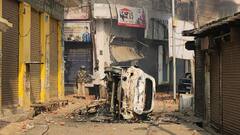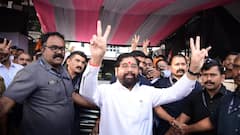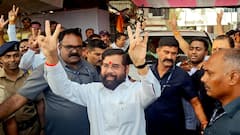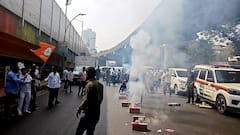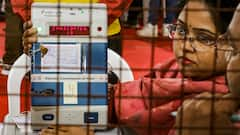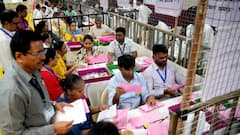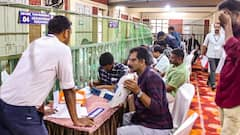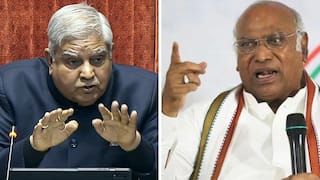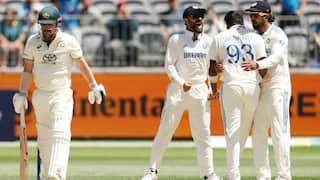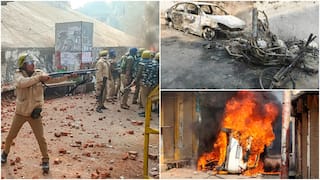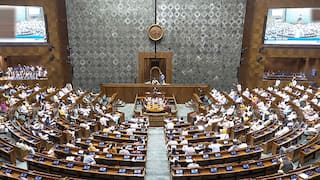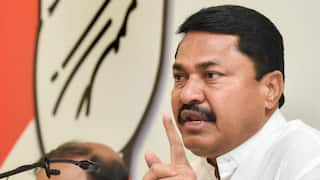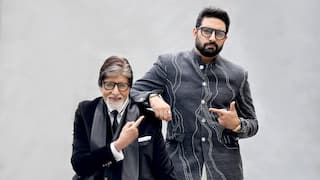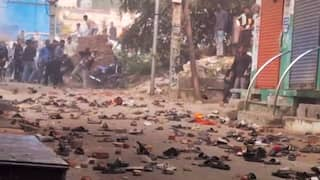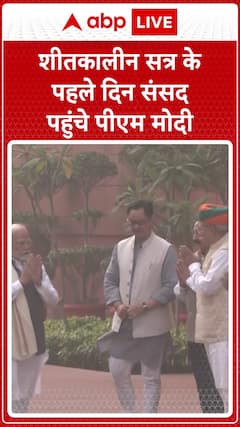Explorer
Advertisement
'Society And Police Forces Triumphed Over Covid-19': Mumbai Police Commissioner, Sanjay Pandey To Kailashnath Adhikari, MD, Governance Now
Mumbai Police Commissioner, Sanjay Pandey, was in a conversation with Kailashnath Adhikari, MD, Governance Now during the webcast as part of the Visionary Talk series.

Visionary Talk Series | Kailashnath Adhikari, MD, Governance Now (L) & Mumbai Police Commissioner, Sanjay Pandey (R)
Source : Governance Now
Crediting the citizens of Mumbai for coming forward to help the police in combating the crisis situation due to the Covid-19 pandemic, Mumbai Police commissioner, Sanjay Pandey has said that Mumbai police lost quite a few policemen during the pandemic but cumulative efforts where citizens worked for hand in hand with the police helped tide the situation.
“Several good Samaritans came forward to help the police in discharging their duties even helping set up tents at different locations and providing sanitisers and masks. The cumulative efforts where citizens worked for hand in hand with the police helped the society and police forces triumph over Covid-19”
Pandey was in a conversation with Kailashnath Adhikari, MD, Governance Now during the webcast as part of the Visionary Talk series held by the public policy and governance analysis platform.
Responding to a range of questions, Mumbai’s top cop said the pandemic changed the pattern in the manner of how not only criminals operate but also how civilians operate. There was a lot of focus on e-commerce and work went digital for most civilians. Compared to pre-pandemic offences too changed to digital in pandemic and this has been a major shift.
Secondly, he said many people lost their jobs and we are noticing now petty crimes being committed by organized criminals which was not the case otherwise. There are many street crimes. On one side digital crimes have increased, on the other side, there is also an increase in street crimes.
While speaking on cyber security Pandey added that territories of Cybercrime far transcend boundaries of countries and hence also transcend various laws that exist in India.
“The laws can be different and coordinated relationships can also be different. Cybercrime is a huge challenge as proxies are used to launch attacks or ransomware by cybercriminals. The aspect of jurisdiction has to be sorted out and internationally we should come on a common platform. Only when countries look at this aspect can we handle cyber crime otherwise it is getting more and more difficult.”
On being asked how he handles cyber security skill sets of his team to keep them at par with global standards, Pandey said his teams have been trained at national level institutes like the Bureau of Police Research and Development besides undergoing training at the local level also. Additionally, he said training is held also for trainers for example at the Cyber Cell in Crime Branch many trained people have further trained constables and officers which has helped percolate training to the sub-inspector level in the city of Mumbai.
Pandey added that for strengthening police administration across the country, a Model Police Act needs to be enacted ‘but it’s a long way to go’.
While responding to a question on how the police are dealing with financial crimes since the onset of the pandemic Pandey said more particularly pandemic has thrown a challenge for economic crimes related to the realty sector where people have invested money for homes and could not get their homes on time. There is much anxiety and the police have received many complaints of delays in the real estate sector. While the police are adequately equipped to handle economic offences, complaints have increased during pandemic.
Pandey, who has been receiving several complaints of corruption and harassment by members of housing societies in Mumbai said engagement with citizens has been the hallmark of Mumbai policing. He recalled that during the Mumbai riots in 1992 when he was DCP, the police would have very good police-citizens interaction with Mohalla committees. Over a period of time, ALMs (advanced locality management) were formed to look at the management of housing societies and municipal facilities.
“So what we have done recently is we have converged the ALM and Mohalla committees and we have formed citizens forums with people from every ward representing all walks of life. Today we have a forum head as well who works independently as well as in coordination with the police. This is something that we have done over the last four months. Our story has been old but it has been moulded in a newer avatar with the name of Citizens Forum akin to international standards” he said.
While responding to a question on how India can ensure better internal security in light of ongoing events happening across the country and become a 5 trillion $ economy, the Mumbai police chief said except for sporadic incidents, by and large Mumbai has been fortunately peaceful on the ground. For this, he said the credit goes not only to the police but to the Mumbaikars who have always lived up to the reputation of the city.
On being asked how the police are adapting technology for internal security he said the police have been evaluating Artificial Intelligence products for facial recognition and mapping of crime and criminal data. He however added that as of now these products have not been implemented and still in evaluation stage.
Blockchain, he said, holds good promise for passports and character verification and can be a major boon but the police is yet to adopt this technology.
He further explained that while the police are looking to adopt and purchase the best available technology it is not looking at PPP where the technology provider is providing free software but for example, taking money for issuing every traffic challan. “Technology should help police to address its crime-related work and help solve citizens' problems.”
On social media and how it can be harnessed for police, the Mumbai Police Commissioner said he is not a great votary for regulation of social media but a basic code of conduct needs to be adopted and inbuilt by social media platforms. “The code of conduct has to be country-specific.”
‘In the recent situation, it has become a major menace. Even for very small incidents, we are being made to come on the road to handle the outburst of people who are reacting. On a basic minimum level, we need to have a code of conduct which is mutually agreed upon between the platforms and government agencies where enforcement agencies should play a very major role otherwise when a flare-up happens we write to these platforms requesting to take off the posts. That is not the right way to function. A systemic response can only happen when we agree to a mutual understanding of a basic minimum code of conduct that every platform needs to comply with” he added.
DISCLAIMER: "This is a sponsored feature and provided by Governance Now."
Follow Breaking News on ABP Live for more latest stories and trending topics. Watch breaking news and top headlines online on ABP News LIVE TV
View More
Advertisement
IPL Auction 2025
Advertisement
Advertisement
Top Headlines
India
Cricket
Cities
India
Advertisement
Trending News


Sagarneel SinhaSagarneel Sinha
Opinion







